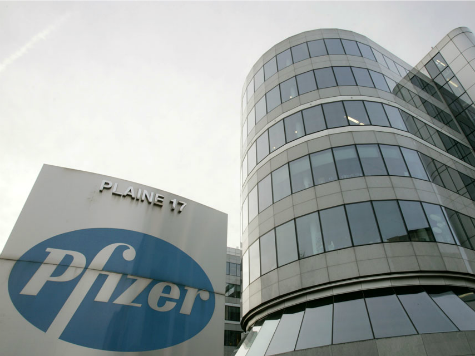
In a huge rejection of the United States’s corporate income tax rate – the highest in the world – America’s second-largest drug company, Pfizer, Inc., just proposed a merger with Britain’s AstraZeneca that would move the company away from New York’s combined 42.1% corporate rate and into the United Kingdom’s 20% rate.
Pfizer has been based in New York City since its founding in 1849.
Pfizer’s plan is what economists refer to as a “reverse merger.” Pfizer would buy AstraZeneca for $98.6 billion and reincorporate in the UK, with shares listed on the New York Stock Exchange. Pfizer said the tax structure would protect AstraZeneca’s revenues from the 39.1% average corporate tax across the US. Pfizer would benefit from its international business being taxed at the current British corporate tax of 21% this year, scheduled to fall to 20% next year.
Ian Read, Pfizer’s Scottish-born Chief Executive, said that the proposed deal would let Pfizer eliminate “redundant functions” and overlapping operations. “Redundant functions” is business-speak for dumping staff at the New York corporate headquarters. The company already sold its 685 Third Avenue New York City office building in 2010 for $190 million. Currently, 4,400 employees are consolidated at the company’s world headquarters at 235 East 42nd Street, near Grand Central Terminal.
A spokesman for U.K. Prime Minister David Cameron seemed delighted at the creation of the world’s largest pharmaceutical company in Britain: “The fact Britain has an open trade-based economy which is open both to investment but also British firms investing overseas, that is a strength to the UK.”
U.S. corporations are at a competitive disadvantage in today’s globalized world. According to the Tax Foundation, American companies face the highest statutory corporate income tax rate in the world at 39.1%. This overall rate is a combination of our 35% federal rate and the average 4.1% rate levied by U.S. states. Pfizer, as a company headquartered in New York, also pays New York’s corporate tax of 7.1%, so Pfizer’s combined state and federal rate is 42.1%
Corporations headquartered in the 33 other industrialized countries that make up the Organization for Economic Cooperation and Development (OECD), however, face an average rate of 25%. Even corporations in high-tax European countries such as Belgium (34%), France (34.4%), and Sweden (22%) face much lower rates than those in the United States.
Pfizer first contacted AstraZeneca in January and again on April 26th, but has been rebuffed so far. Given the enormous tax benefits of the merger, many analysts expect Pfizer to raise its bid to over $100 billion. A deal would allow Pfizer to also use some of the $70 billion in cash it has built up overseas that would be subject to taxes if brought back to the U.S. Buying AstraZeneca would boost Pfizer’s pipeline of cancer drugs and create significant cost and tax savings.
Whatever the outcome of the Pfizer/AstraZeneca merger, the exit of U.S. companies to escape the highest corporate tax rate in the world has begun.

COMMENTS
Please let us know if you're having issues with commenting.